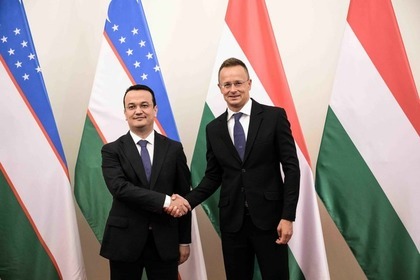Minister of Investments, Industry and Trade Laziz Kudratov, Deputy Head of the Presidential Administration of Uzbekistan Alisherbek Paygamov (before the change in the structure of the Presidential Administration) met with the Minister of Foreign Affairs and Trade of Hungary Péter Szijjártó and in particular discussed cooperation in the field of nuclear energy on August 19.
According to Péter Szijjártó, Uzbekistan, like Hungary, considers nuclear energy as a guarantee of a safe, cheap and reliable energy supply. He added that Uzbekistan planned to build a nuclear power plant using dry cooling technology, which can be provided by Hungary.
“An agreement was reached that if progress is made in the nuclear project in Uzbekistan, Hungarian dry cooling technology will be used, which means that joint Russian-Uzbek-Hungarian cooperation in the nuclear field will stand at hundreds of millions of euros,” said Péter Szijjártó.
Footage posted on his Facebook page says that Uzbekistan is considering using this technology due to lack of funds.
Uzbekistan and Hungary discussed the use of the “dry” method of cooling circulating water at large thermal power plants, including nuclear power plants, which is used by the Hungarian company Eniox, in July 2020. The Hungarian side stated that it was ready to provide financing to the Eximbank of Hungary in the amount of 130 million euros with the participation of Eniox in this project.
The Paks nuclear power plant has been operating in Hungary since 1982. Starting from 2032, the planned decommissioning of its power units will begin. Now in Hungary, a project has been launched for the construction of the Paks-2 nuclear power plant of the Russian design of the 3+ generation with two power units based on VVER-1200 reactors. Its construction will begin in 2024.
In May 2023, Minister of Energy Zhurabek Mirzamakhmudov noted that Uzbekistan continues to discuss the construction of a nuclear power plant with Rosatom, and also studies achievements in the field of small nuclear reactors in parallel. “The construction of a nuclear power plant is a very serious obligation for the state … We must eliminate any risks,” he said.

